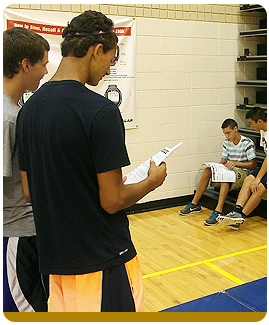MVP is one of the longest-running programs in the gender violence prevention field and the first “bystander” program.
It has worked successfully with hundreds of thousands of students and professionals across the U.S. and around the world.

In addition to the students who have been through MVP trainings, thousands of students have been trained as MVP mentors, which often is a life-changing experience.
MVP has been independently evaluated in high school, college, professional and military settings and has been proven to have statistically significant positive changes in participant knowledge, attitude, and behavior.
MVP College Evaluations
Eriksen, S. (2015) Executive summary: Program Evaluation of the Mentors in Violence Prevention Leadership Training at California State University, Long Beach. Click here to Download PDF
Eriksen, S. (2015) Program Evaluation of the Mentors in Violence Prevention Leadership Training at California State University, Long Beach. Click here to Download PDF
Dept. of Justice (2011) Final Evaluation Report of MVP Campus Leadership Initiative (3 parts):
Cissner, A. B. (2009). Evaluating the Mentors in Violence Prevention program: preventing gender violence on a college campus. New York: Center for Court Innovation.
Click here to Download PDF
MVP High School Evaluations
Fleming, M and Heisterkamp, A. (2015) Cultivating Partnerships: A Case Study for Moving Beyond Campus-Centric Approaches to Sexual Violence Prevention See More
Katz, J., Heisterkamp, A, Fleming, M. (2011). The Social Justice Roots of the Mentors in Violence Prevention Model and Its Application in a High School Setting.
Ward, K. (2002) Mentors in Violence Prevention High School Evaluation
Williams, D. and Neville, F. (2107) Qualitative Evaluation of the Mentors in Violence Prevention Pilot in Scottish Schools. Psychology of Violence. Vol. 7, No. 2, 213-223.
Below please find PDF versions of select evaluation reports of MVP in a variety of settings.
In conjunction with key community partners and research associates, we currently are accelerating the evaluation of a number of MVP initiatives unfolding in high school, college, and military settings.





